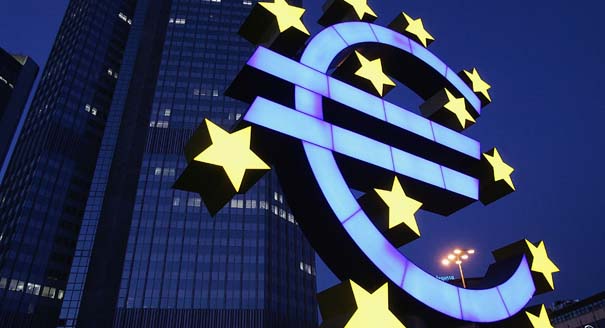Every week leading experts answer a new question from Judy Dempsey on the foreign and security policy challenges shaping Europe’s role in the world.
The debate between advocates of austerity and supporters of stimulus still rages across Europe. Our experts assess whether backing for German Chancellor Angela Merkel’s economic policies—the “Merkel way”—is starting to wane.
Uri DadushSenior associate and director of the international economics program, Carnegie Endowment for International Peace
The “Merkel way” is exemplified by the European Fiscal Compact, which entered into force in January of this year. The treaty stipulates that eurozone countries must move toward a balanced budget rule or face sanctions by the European Court of Justice.
After a short-lived recovery in 2010, the European economy is now approaching its third year of recession. Unemployment is rising, most eurozone countries are far from achieving their fiscal targets, and governments are under pressure to cut more.
It is thus not surprising that resistance to the “Merkel way” has become widespread—notwithstanding the German chancellor’s remarkable popularity at home. Even the IMF has warned against excessive austerity, and critics are emboldened by declining spreads on periphery bonds following ECB chief Mario Draghi’s promise to intervene to support them.
The anti-austerity camp certainly has a point: Germany’s pursuit of a balanced budget at home in the midst of a Europe-wide recession is anomalous. The ECB’s policies could be even more aggressively expansionary, following the example of the Federal Reserve or, most recently, Japan’s Central Bank.
However, the contention that the eurozone’s periphery should ease up on budget cuts smacks of wishful thinking. Investors will only recover confidence in the periphery if they see a clear trend toward moderating debt levels, competitiveness, and renewed growth.
The sad fact is that, in the absence of an ability to devalue the currency, austerity policies are a necessary part of moderating inflation, reducing wages, and boosting productivity in the uncompetitive periphery economies.
Denis MacShaneFormer UK Europe minister
Merkelomics is specific to Germany. And while Berlin is not alone in having to adjust its budget to new economic realities, Merkel cannot be blamed for corrupt public finances in some southern European countries. Nor is she responsible for the Spanish housing bubble or the refusal of Greek governments of left or right to collect taxes from their voter clients.
Merkel was lucky in that her predecessor, Gerhard Schröder, did all the heavy lifting to clean up the German economy and make it competitive again. But her do-little management style is edging Germany toward zero growth, and she now faces the same populist anti-euro politics as seen from the UK’s Nigel Farage, the Netherlands’ Geert Wilders, Italy’s Beppe Grillo, and others.
Merkelomics needs to give way to smarter economic management. Other EU member states should benefit from this, but they won’t unless they too embrace reforms to free up their economies. They also need to allow the mountains of capital currently hoarded by the über-rich to become free-flowing rivers of capital that can create a new middle class of entrepeneurs and fair-paid workers.
That requires new economic thinking, but so far most politicians have been hankering after a return to an imagined past. Like former chancellors Helmut Kohl and Konrad Adenauer, Merkel can carry on. But she has done all she can and is now an obstacle to progress. All political stars fade, and Merkel’s twilight has begun.
Stephen SzaboExecutive director, Transatlantic Academy
If by the “Merkel way” we mean deficit-cutting in the medium term, then no, there is still support for the idea of cuts over more spending—even among European publics.
The key question is what to do over the next couple of years to restart Europe’s engines. On this issue, there are signals in Germany and elsewhere that some easing of debt reduction deadlines is necessary. Indeed, there is a broader consensus in Europe for such an approach than is apparent from the media focus on extreme reactions to German economic policies.
Europeans have realized that the golden era of easy financing only produces bubbles of superficial prosperity.






.jpg)